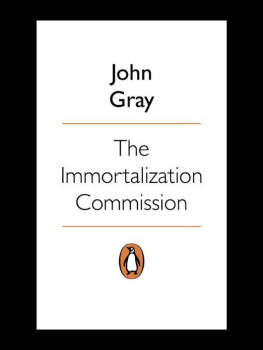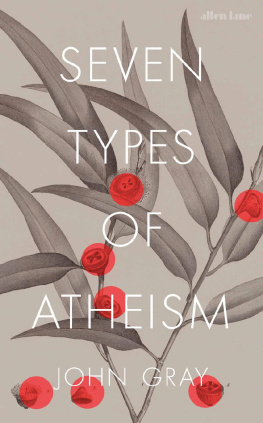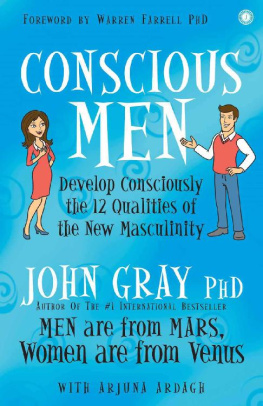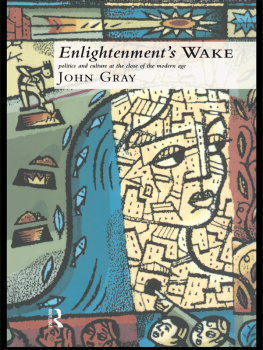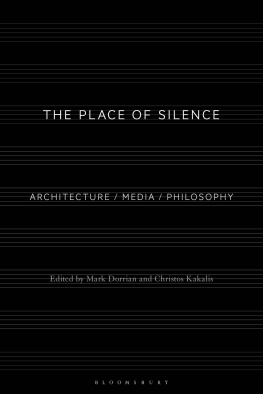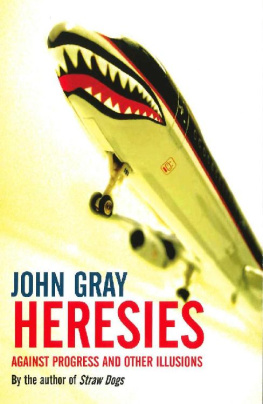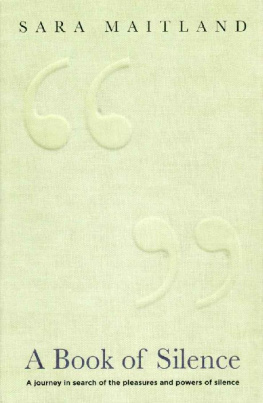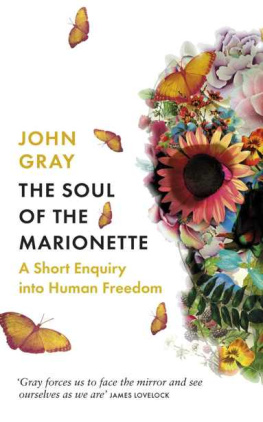
The author and publisher have provided this e-book to you for your personal use only. You may not make this e-book publicly available in any way. Copyright infringement is against the law. If you believe the copy of this e-book you are reading infringes on the authors copyright, please notify the publisher at: us.macmillanusa.com/piracy.
Contents
The seasons are no longer what they once were,
But it is the nature of things to be seen only once,
As they happen along
John Ashbery
1 An Old Chaos
The highly civilized apes swung gracefully from bough to bough; the Neanderthaler was uncouth and bound to the earth. The apes, saturated and playful, lived in sophisticated playfulness, or caught fleas in philosophic contemplation; the Neanderthaler trampled gloomily through the world, banging around with clubs. The apes looked down on him amusedly from their tree tops and threw nuts at him. Sometimes horror seized them: they ate fruits and tender plants with delicate refinement; the Neanderthaler devoured raw meat, he slaughtered animals and his fellows. He cut down trees that had always stood, moved rocks from their time-hallowed place, transgressed every law and tradition of the jungle. He was uncouth, cruel, without animal dignity from the point of view of the highly civilized apes, a barbaric relapse of history.
Arthur Koestler, Darkness at Noon
THE CALL OF PROGRESS
Kayerts was hanging by a leather strap from the cross. He had evidently climbed the grave, which was high and narrow, and after tying the end of the strap to the arm, had swung himself off. His toes were only a couple of inches above the ground: his arms hung stiffly down; he seemed to be standing rigidly at attention; but with one purple cheek playfully posed on the shoulder. And, irreverently, he was putting out a swollen tongue at his Managing Director.
The hanged man was one of a pair of traders sent by a Belgian corporation to a remote part of the Congo, 300 miles away from the nearest trading post. Most of their work was done by a native interpreter, who used a visit by some tribesmen to sell some of the outposts workers as slaves in exchange for ivory tusks. Initially shocked at being involved in slave-trading but finding the deal highly profitable, Kayerts and the other European Carlier accepted the trade. Having made the deal, they were left with little to occupy their time. They passed their days reading cheap novels and old newspapers extolling Our Colonial Expansion and the merits of those who went about bringing light, faith and commerce to the dark places of the earth. Reading these newspapers, Carlier and Kayerts began to think better of themselves. Over the next few months they lost the habit of work. The steamer they were expecting did not come and their supplies began to run out. Quarrelling over some lumps of sugar that Kayerts held in reserve, Carlier was killed. In desperation, Kayerts decided to kill himself too. As he was hanging himself on the cross, the steamer arrived. When the Managing Director disembarks, he finds himself face to face with the dead Kayerts.
Joseph Conrad wrote An Outpost of Progress in 1896, and it is a story at least as ferocious and disabused as his later and better-known novella Heart of Darkness . Conrad describes how Kayerts sat by the corpse [of Carlier] thinking; thinking very actively, thinking very new thoughts. His old thoughts, convictions, likes and dislikes, things he respected and things he abhorred, appeared in their true light at last! Appeared contemptible and childish, false and ridiculous. He revelled in his new wisdom while he sat by the man he had killed. But not all of Kayertss old convictions have vanished, and what he still believes in leads him to his death. Progress was calling Kayerts from the river. Progress and civilisation and all the virtues. Society was calling to its accomplished child to come to be taken care of, to be instructed, to be judged, to be condemned; it called him to return from that rubbish heap from which he had wandered away, so that justice could be done.
In setting his tale in the Congo, where he had observed the effects of Belgian imperialism at first hand when he visited the country in 1890 to take command of a river steamer, Conrad was making use of a change he had himself undergone. Arriving with the conviction that he was a civilized human being, he realized what in fact he had been: Before the Congo, I was just a mere animal. The animal to which Conrad refers was European humanity, which caused the deaths of millions of human beings in the Congo.
The idea that imperialism could be a force for human advance has long since fallen into disrepute. But the faith that was once attached to empire has not been renounced. Instead it has spread everywhere. Even those who nominally follow more traditional creeds rely on a belief in the future for their mental composure. History may be a succession of absurdities, tragedies and crimes; but everyone insists the future can still be better than anything in the past. To give up this hope would induce a state of despair like that which unhinged Kayerts.
Among the many benefits of faith in progress the most important may be that it prevents too much self-knowledge. When Kayerts and his companion ventured into the Congo the aliens they met were not the indigenous inhabitants but themselves.
They lived like blind men in a large room, aware only of what came in contact with them (and of that only imperfectly), but unable to see the general aspect of things. The river, the forest, all the great land throbbing with life, were like a great emptiness. Things appeared and disappeared before their eyes in an unconnected and aimless kind of way. The river flowed through a void. Out of that void, at times, came canoes, and men with spears in their hands would suddenly crowd the yard of the station.
They cannot endure the silence into which they have come: stretching away in all directions, surrounding the insignificant cleared spot of the trading post, immense forests, hiding fateful complications of fantastic life, lay in the eloquent silence of mute greatness. The sense of the progression of time, which they had brought with them, begins to fall away. As Conrad writes towards the end of the story, Those fellows, having engaged themselves to the Company for six months (without having any idea of a month in particular and only a very faint notion of time in general), had been serving the cause of progress for upwards of two years. Removed from their habits, Kayerts and Carlier lose the abilities that are needed to go on living. Society, not from any tenderness, but because of its strange needs, had taken care of those two men, forbidding them all independent thought, all initiative, all departure from routine; and forbidding it under pain of death. They could live only on condition of being machines.
The machine-like condition of modern humans may seem a limitation. In fact it is a condition of their survival. Kayerts and Carlier were able to function as individuals only because they had been shaped by society down to their innermost being. They were:
two perfectly insignificant and incapable individuals, whose existence is only rendered possible through the high organization of civilized crowds. Few men realize that their life, the very essence of their character, their capabilities and their audacities, are only the expression of their belief in the safety of their surroundings. The courage, the composure, the confidence; the emotions and principles; every great and every insignificant thought belongs not to the individual but to the crowd: to the crowd that believes blindly in the irresistible force of its institutions and of its morals, in the power of the police and of its opinion.
Next page


